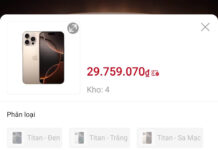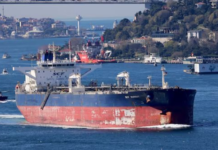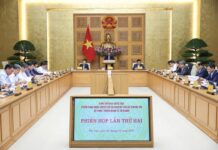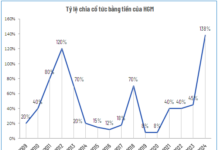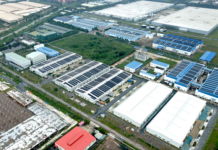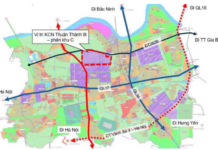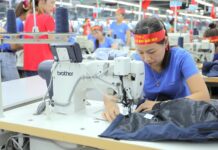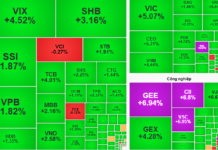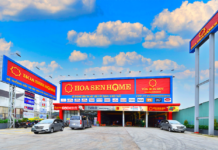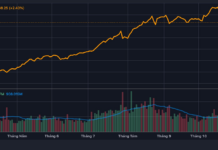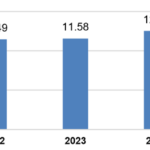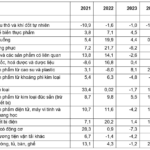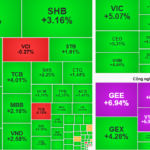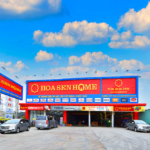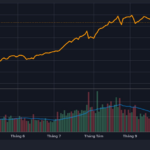Vietnam’s proactive negotiation and securing of competitive tariff rates compared to other countries in the region have affirmed its appeal as the “new stronghold” for multinational corporations. However, beyond geographical advantages, Vietnam needs to demonstrate its capacity for capital absorption and a financial ecosystem that is open and deep enough to accommodate these investments.

Global FDI Flows: Competitive Pressures and Opportunities for Vietnam
The United States currently accounts for nearly a third of Vietnam’s export turnover. Maintaining the 20% tax rate will not only preserve Vietnam’s competitive advantage but also attract FDI and shift orders to the country. In addition to its geographical advantages, Vietnam scores well on reasonable labor costs, improving labor quality, developing infrastructure, and ongoing efforts to promote digital transformation and administrative reforms, creating an investor-friendly environment.
According to JETRO’s 2024 survey, 15.6% of manufacturing businesses, mainly from Japan and China, have relocated part or all of their operations to ASEAN countries, with Vietnam being the top choice at 24.8%. Moreover, a report by DHL ranks Vietnam second among destinations for orders leaving China, accounting for over 27% of decisions to reposition supply chains in the consumer electronics and industrial equipment sectors.

Along with multilateral FTA advantages, Vietnam is promoting administrative reforms through digitalization, adopting a “post-inspection” process instead of “pre-inspection,” and simplifying investment licensing procedures in line with the government’s open mechanism. The reorganization of administrative boundaries is forming large industrial super-provinces, providing a foundation for the development of international-scale logistics and industrial zones such as the expanded Ho Chi Minh City, Dong Nai, and Vinh Phuc.
In reality, many corporations are continuing to increase their investments and reaffirm their long-term commitments to Vietnam. Examples include Lego with over $1.3 billion in Ho Chi Minh City (formerly Binh Duong), Nestlé expanding its factory in Dong Nai, Coca‑Cola building a LEED Gold-certified factory in Tay Ninh, and Syre, Sweden’s leading textile and garment company, investing $1 billion in Gia Lai.
However, ACBS analysts caution that most of Vietnam’s key export industries (except for agriculture, forestry, and fisheries) have a very high import ratio for raw materials, especially for FDI enterprises. Therefore, the focus in the coming time will be on clearly negotiating the definition of “transhipment goods” and the applicable transhipment tax rate to maintain export growth and efficiently absorb investment capital.
Absorbing FDI Requires Not Only Policies But Also a Suitable Financial Ecosystem
To seize this opportunity effectively, Vietnam needs to continue enhancing its capital absorption capacity, especially in transhipment policies and a financial ecosystem catering to FDI businesses. In Vietnam, some domestic commercial banks like ACB have proactively developed a dedicated financial ecosystem for FDI enterprises, bridging the gap between “potential advantages” and “actual value” with eight core strengths:
– Highest credit rating in the Vietnamese banking system, reflecting superior financial capacity and risk management;
– Top private bank in retail, providing insights into domestic consumer behavior;
– Second-largest distribution network with over 400 transaction offices covering key FDI investment regions;
– Competitive, stable, and transparent pricing policies tailored to different business segments;
– Specialized products: multi-currency accounts, trade finance, forex, and flexible long-term hedging solutions for up to 5 years, guarantees, ERP system integration, etc.;
– Pioneering corporate digital banking suitable for domestic and international payment needs;
– Deep understanding of the investment environment and local policies, with strong connections to over 20 industrial parks nationwide;
– Bilingual and multilingual (English, Chinese, Korean, etc.) investment consulting team dedicated to supporting foreign investors from the survey stage to operation. ACB has established a “partner bank” model, not only providing financial services but also offering advisory services to foreign businesses.
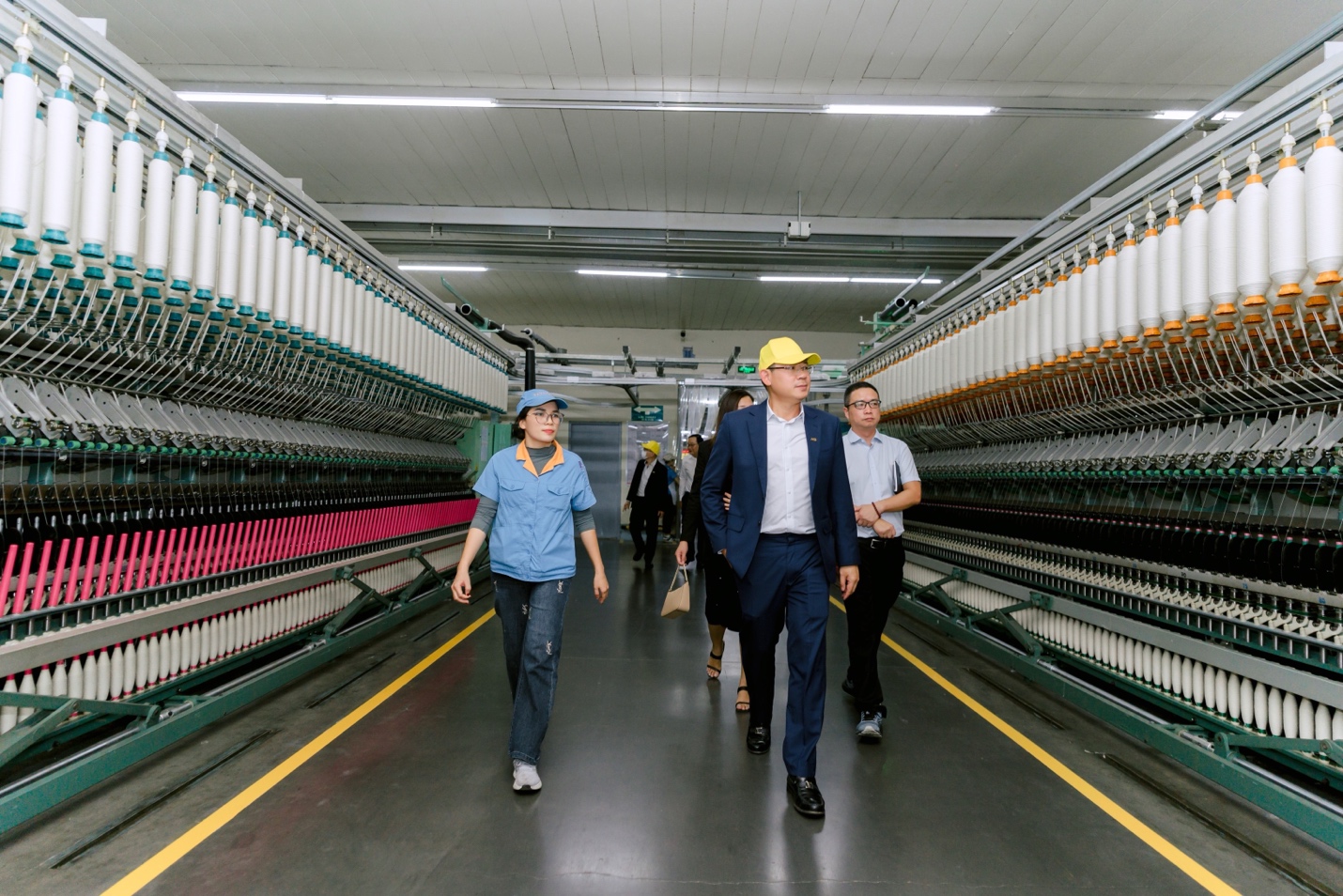
Mr. Tu Tien Phat, CEO of Asia Commercial Joint Stock Bank, directly inspecting the modern and most advanced spinning production line at a foreign-invested factory in the textile and garment industry in Quang Ninh
Notably, ACB has tailored credit products for FDI enterprises in Vietnam, ensuring diverse loan forms, easy access, and criteria suitable for foreign businesses. The bank has also stood side by side with businesses through the “Compass in Turbulent Times” program, providing timely and specific analyses: multilingual financial market updates in Vietnamese, English, and Chinese; recommending risk management solutions for exchange rates and interest rates to import-export and FDI enterprises exposed to exchange rate or interest rate risks for revenue, payment, and short-term and long-term foreign currency and VND debts. Additionally, ACB launched promotional programs such as “Competitive Exchange Rates – Accompanying Export with preferential exchange rates of up to 150 points for export customers” and “International Money Transfer Golden Day with a flat fee of only 9.9 USD/transaction for import customers.”
“We aim to facilitate businesses’ access to capital and ensure they don’t miss any growth opportunities,” said Mr. Ngo Tan Long, Deputy CEO of ACB. “At the same time, ACB’s comprehensive financial ecosystem will help businesses hedge against economic fluctuations,” he emphasized.
Vietnam Can Be a “Promised Land” for FDI Businesses with the Right Long-term Financial Partner
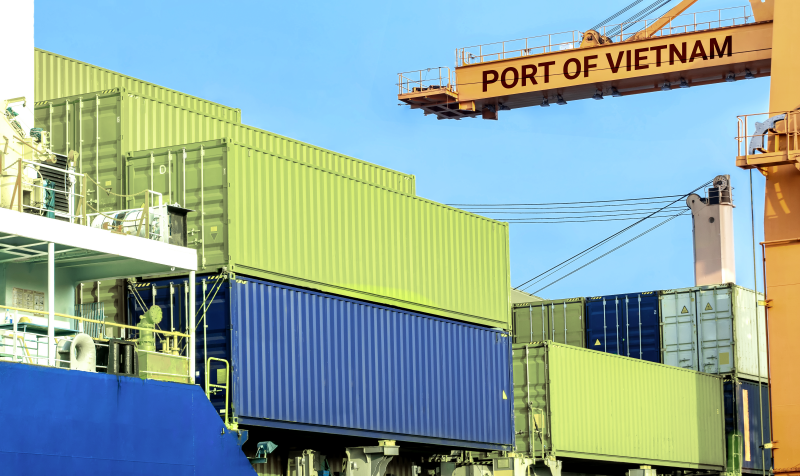
Attracting FDI is just the first step; Vietnam also needs to be prepared to retain and accompany these businesses in the long run. This starts with a financial ecosystem that is resilient, adaptable, timely, and responsive to their needs.
For more information on specialized policies for corporate customers, please visit acb.com.vn or contact the 24/7 Contact Center at (028) 38 247 247 or your nearest ACB branch for advice and support.
Crafting Climate-Resilient Project Criteria
This criterion will contribute to refining policies related to climate change adaptation and public investment. It will aid ministries, sectors, and localities in clearly identifying the relevance of projects to climate change adaptation goals, providing a basis for selecting well-focused project proposals.
The Ultimate Lifestyle Choice for the Discerning Achiever
In the midst of a booming second-home market in Northern and Central Vietnam, riverfront property Aquamarine in Dien Chau, Nghe An is emerging as the choice for discerning individuals seeking a ‘second home’. This exclusive development offers a unique blend of work and vacation, attracting those who desire a balanced lifestyle without compromising on financial stability.
Industrial Production Grows by 8.6%: Manufacturing and Processing Sectors Lead the Way.
The industrial production landscape for the first seven months of 2025 has been a positive story, with a standout performance from the manufacturing sector, which saw a notable 10.3% increase. This sector has once again proven to be the driving force behind the overall industry’s growth.

